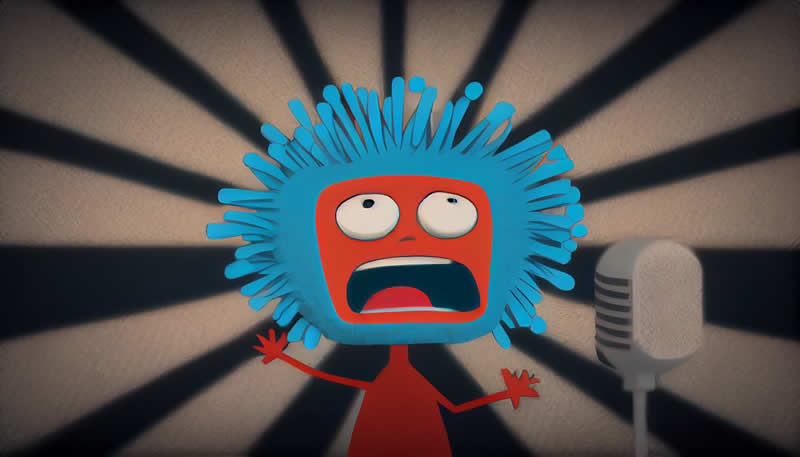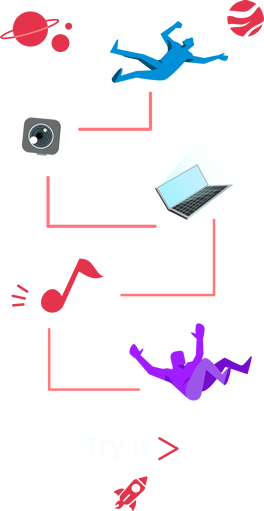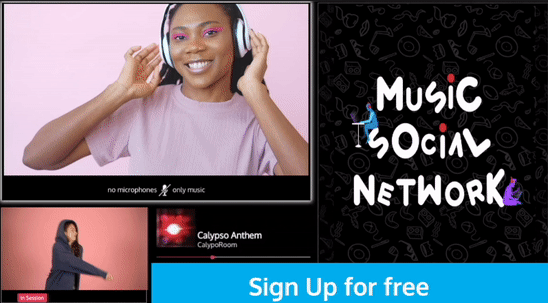How to know if you're tone deaf: definition and best advices
Tone deafness is a widespread myth that frequently affects both artists and students. Many people think tone deafness is the only explanation for someone who has trouble singing. However, the vast majority of people are not tone deaf.
Many people wonder if they are tone deaf or not. However, tone deafness is actually a quite uncommon condition. Don't throw yourself off because you can't sing; don't consider yourself a lost cause. Instead, educate yourself about the symptoms of tone deafness and the major conditions that can affect your pitch.
The definition of tone deafness will be discussed in this blog article, along with some common misconceptions about it. Let’s dig into it!
What is tone deaf?
A person who is tone deaf is unable to distinguish between various musical tones and subtleties. There are several potential causes for it. These include issues with the brain's neuronal processing or hearing impairments.
Additionally, psychological and developmental issues, such as performance anxiety in front of others, might contribute to tone deafness. True tone deafness is quite uncommon, and singing lessons may typically help you with pitch problems.

What does tone deaf mean?
It is impossible for tone deaf people to hear the pitch and comprehend it in their brains. People who are tone deaf are unable to discern between musical tones because of the way their brains function. This condition even has a name in medicine: amusia.
Congenital amusia, or amusia unrelated to brain damage, only affects 4% of people, according to researchers. Therefore, if you have difficulty singing in tune, it is unlikely that you are tone deaf; rather, it is because you are unaware of the intricate interaction between the brain, vocal cords, and breath that results in pitch accuracy.
Do you still wonder if you have tone deafness? The National Institute on Deafness and Other Communication Disorders offers a free online tone deaf test to determine whether you are tone deaf.
Since there is currently no known treatment for amusia (it's just the way your brain works), singing is definitely not the best activity for someone who is genuinely tone deaf. You can still have fun playing a different instrument, like the guitar, drums, or whatever you like the most.

Why you can’t match the pitch?
Pitch singing requires intricate brain, vocal cord, and breathing synchronization. The singer first detects the pitch. The singer must then make the necessary adjustments to their vocal chords so that the pitch may be accurately reproduced. Finally, the singer produces the pitch by making their vocal chords vibrate with their breath.
A singer may sing out of tune if any one of these three requirements is not met. The second phase, which involves positioning the vocal chords to sing at a specific pitch, is the most difficult for most individuals.
For this precise reason, even those with perfect pitch occasionally sing out of tune!
What is perfect pitch?
Absolute pitch, usually referred to as perfect pitch, is a desirable musical skill that enables artists to recognize or create a certain sound without the use of a reference point.
Even though developing this skill might be quite difficult, individuals who do are able to identify sounds with astonishing precision.

Musicians with perfect pitch are able to detect individual tones without any reference, whether they are singing, recognizing notes on a scale, or listening to music.
Despite how great this gift is, absolute pitch is not required for a successful musical career. In fact, many extremely talented artists don't even have a hint of it.
In the end, musicians are motivated to achieve more by their passion and inventiveness than by having perfect pitch or even excellent technique.
Finding out if you're tone deaf
A few procedures can be used to check for amusia. A tone deafness test can help you determine if you are indeed tone deaf or simply somewhat pitchy.
Identifying two notes that are played consecutively is one way to test for tone deafness. You can be tone deaf if you can't distinguish between the two tones.
Attempting to sing along with a well-known song is another approach to checking for amusia. You could be tone deaf if you routinely sing off-key or if you have problems hearing the tune.
Amusia has no known treatment, but with effort and instruction, those who suffer from it can learn to distinguish between tones and improve their pitch perception.

The benefits of music lessons
You probably don't like singing in front of others, and it can be annoying when your pitch is off. But music lessons might be beneficial. You may improve your ability to match pitch by learning proper placement for your mouth, voice cords, and head, as well as proper breathing and pitch support techniques.
Your vocal abilities will improve, and a gifted vocal coach may choose songs that will help you hone both your voice and your singing.
Although many people choose to play an instrument instead of learning to sing, instrumentalists can benefit just as much from taking singing classes. Instrumentalists who take singing classes develop skills that make it easier for them to pick up tunes more quickly.
Additionally, singing helps kids develop critical abilities such as reading music from a sheet of paper and comprehending what sounds their instrument should produce. Instrumentalists who are more adept at sight-singing are better able to comprehend the music and see any potential errors in rhythm or note placement.

Taking music lessons is the most effective way to learn to match pitch. You'll need to put in some effort, but you may develop your singing skills with a teacher's guidance.
How to know if you're tone deaf - Conclusion
Contrary to popular belief, the majority of individuals are not tone deaf. You may improve your comprehension of tone with a few straightforward pointers. You can learn to sing properly if you are not one of the 4% of people who are actually tone deaf.
If you liked this post and would want to read more tips for your music career and general information about the music industry, please visit our blog section.
You're here because you love music, so please try to listen to it together with your friends or strangers, at the same time, connected by webcam in CalypsoRoom.
In CalypsoRoom we believe music is the most powerful tool to bring people together, and for this reason, we developed an online music social network where you can connect with friends or strangers while listening to music simultaneously, connected via webcam.
Are you a music artist or label and do you want to give your music a further dimension? Do you own or co-own the master and publishing rights to your music? If yes, consider to post it on CalypsoRoom: it’s free, you keep 100% of your copyright, you promote your music in a new way, and you get a new revenue stream! Check it out.
Thanks for reading,
CalypsoRoom Team
back
Written by CalypsoRoom Editorial Team
The CalypsoRoom Editorial Team is a skilled and diverse group of writers, researchers, and industry specialists who have access to Calypso's data and information in order to give you broad knowledge about the music industry as well as helpful advice to help you manage your music and dancing career.
Updated January 2023
Company number: 681223
James's Walk 31, Dublin, Ireland
contact@calypsoroom.com
+353 (89) 435 8928





